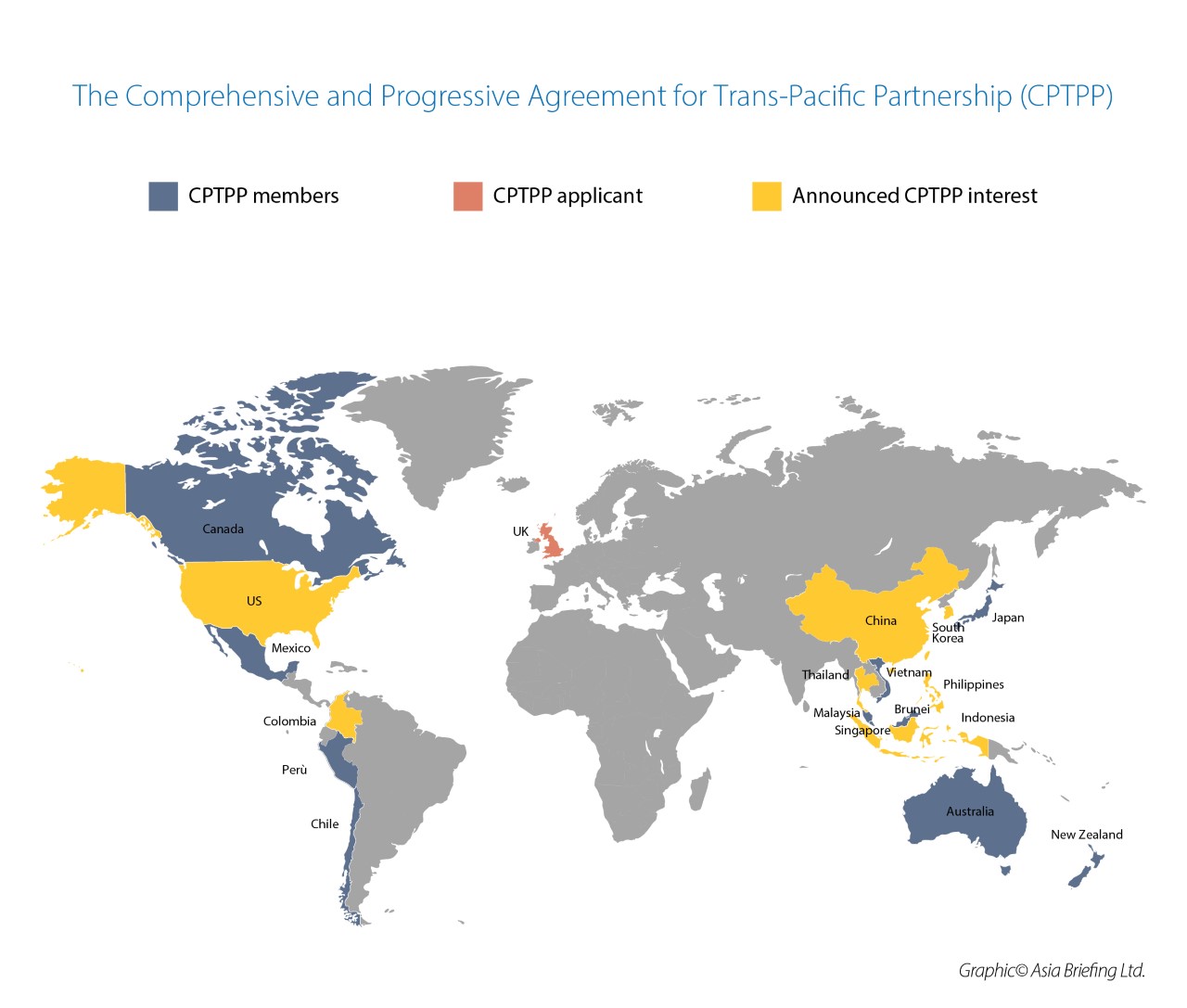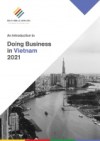The Asia-Pacific CPTPP Takes New Shape With UK Membership Application
- British Businesses Should Be Looking At Where The Opportunities Are As A Free Trade Agreement Is Likely
Op/Ed by Chris Devonshire-Ellis
The United Kingdom, looking for new global free trade agreements and market access in the aftermath of Brexit, has initiated talks to join the Comprehensive and Progressive Agreement for Trans-Pacific Partnership (CPTPP). A virtual meeting was held on June 2 between the UK and the eleven current members of the CPTPP, which includes Japan, Brunei, Malaysia, Singapore and Vietnam in Asia, Australia and New Zealand, Canada, and Mexico in North America together with Chile and Peru in South America. The grouping is essentially an Asia-Pacific trade alliance. The UK, thousands of miles away, qualifies through its sovereignty of the Pitcairn Islands.

With the UK’s formal membership application accepted, CPTPP members will now discuss whether the UK meets the high liberalization standards of the agreement in areas such as tariffs and investment regulations in a procedure likely to take about 12 months. A unanimous agreement is required. British lobbying within the APEC region can be expected to significantly increase during this period.
The CPTPP came together in 2018 after then US President Donald Trump pulled the United States out of what had been known as the Trans-Pacific Partnership (TPP) in 2017. Japan then made strenuous efforts to keep at the deal alive, even without the US.
There are however significant other regional and global political pressures impacting upon the CPTPP. The US has retained ‘interest’ in the bloc, while China has also stated its interest in joining the CPTPP. A free trade union involving China, the UK and the United States however is unlikely to happen, meaning that a decision made in favour of London would probably signal an end to China’s involvement while increasing the possibility of a future United States accession.
This is why, in our opinion, China is concentrating on development of the Regional Comprehensive Economic Partnership (RCEP) agreement, which while not Pacific in nature, does just cement China as a key bloc within Asia.
On the other hand, Chinese membership of CPTPP would help China reform, an issue the CPC may be considering in order to further develop its SOE’s, although vested interests within China will prove resistant to this. This is because CPTTP membership imposes a trade liberalization agenda among member states on issues such as services, investment and digital trade and sets high standards for accession,
These would additionally require China to reform its SOEs and the Central Government to relinquish ownership, while also permitting the free flow of data across its borders. It is understood that Beijing has been discussing the overall CPTPP membership requirement criteria with New Zealand and Singapore. We feel that with the political emphasis of the CPTPP currently lying in Tokyo, and with Japan already in various Free Trade Agreements with China, Tokyo will wish to keep the CPTPP under its own agenda and influence rather than risk diluting that with a Beijing membership.
The US Position on CPTPP remains as sitting on the fence, with no clear Asia-Pacific trade policy yet determined by the Biden administration. That may change with a UK admission.
On balance then, the UK will be able to meet CPTPP standards as it has adopted high EU standards in the past. Meeting CPTPP requirements should not be an issue, and London remains on friendly terms with all the current members. Six of them are members of the British Commonwealth and three of them retain the British Sovereign on their national currency.
Chinese involvement, while being discussed, looks unlikely, at least for now. British companies then should be actively looking at trade and investment opportunities in the region – and especially with Japan, Singapore and Vietnam, the latter two of which signed off additional trade agreements with the UK (details in links above) earlier in the year. Related reading on these two markets can also be found as follows:
 |
An Introduction to Doing Business in Singapore 2021 |
 |
An Introduction to Doing Business in Vietnam 2021 |
Significantly, the UK also joined the ASEAN Free Trade Bloc as an observer earlier in the year, with an eye on increasing trade with other ASEAN members, and has taken steps to do so with Indonesia and Thailand. Our ‘Doing Business In ASEAN 2021’ Guide additionally refers and can be downloaded here.
Related Reading
About Us
Dezan Shira & Associates have a 30-year history of assisting UK and other foreign investment into Asia, and maintain offices in Japan, Malaysia, Singapore, and Vietnam. We also have offices throughout China, ASEAN, and India. Please contact us at asia@dezshira.com for local market intelligence and market entry assistance, or visit us at www.dezshira.com





